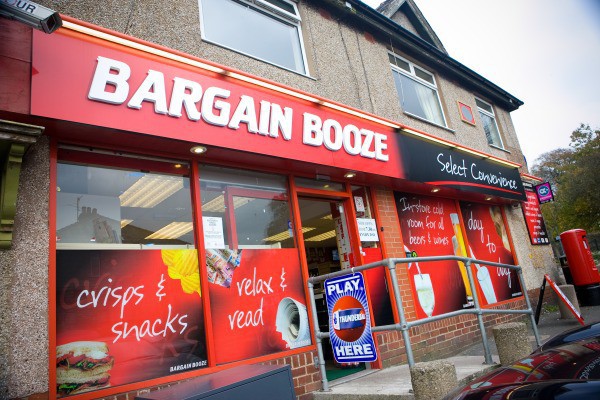
Conviviality to raise £125 million to avoid collapsing
Conviviality has confirmed its likely to go out of business if its fundraising bid to raise £125 million fails.
Alongside issuing its third profit warning in a month, the cash strapped wholesaling group said in a stock exchange announcement last night that it was “unlikely to be able to trade on a going concern basis” if the company was unable to raise funds by “way of the placing or otherwise”.
The Bargin Booze owner, which last week announced it was in talks to begin equity fundraising to plug a £30 million tax shortfall (due on March 29), said it had arranged meetings with institutional investor this week to convince them to take part in its share placing to raise £125 million.
Conviviality, which also owns Wine Rack, Bibendum and Matthew Clark, said it needed the cash to resolve overdue payments with creditors, settle payments with tax authorities, repay the £30 million revolving credit facility and provide enough capital headroom to allow it to recapitalise the business.
It said it was exploring "other funding alternatives in the event that the placing is unsuccessful", but cautioned that "if the company is unable to raise funds by way of the placing or otherwise, it is unlikely to be able to trade on a going concern basis”.
In the same statement, Conviviality issued a third profit warning, saying its earnings before interest, tax, depreciation and amortisation for the year to end April 29 would be around £10 million less than expected.
Conviviality said that if its share placing was successful, it now expected annual underlying profits of £45.5 million to £46 million, compared to the £55.3 million to £56.4 million range it announced on 13 March.
It blamed the latest cut to expectations on its deferral of franchise deals, which it said would lower the income from these franchises.
If the share placing was successful, Conviviality said it wanted to make an open share offer to all Conviviality shareholders to raise a further £4.4 million.
Both fundraisings are subject to approval by shareholders at a general meeting.
It has been a stormy few weeks for the company which blamed its first profit warning on an “arithmetic error” in its forecasts, as well as tougher trading and tighter margins.
It then issued a second profit warning last Tuesday, less than a week after the first one and on the day its shares were suspended when it admitted the unforeseen tax demand of £30 million.
As a result, CEO Diana Hunter stepped down from the board with immediate effect on Monday.
Non-executive chairman David Adams has stepped up to become executive chairman in the interim, with Hunter staying on “for a period of time in order to provide transition support”.




